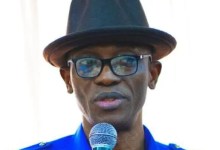Former EFCC Chairman Abdulrasheed Bawa Reveals Massive Fuel Subsidy Fraud Involving Billions of Naira Through ‘Ghost Imports’ and Over-Invoicing
Massive Fuel Subsidy Fraud Involving Billions of Naira Through 'Ghost Imports' and Over-Invoicin,Abdulrasheed Bawa said

Former Chairman of the Economic and Financial Crimes Commission (EFCC), Abdulrasheed Bawa, has exposed extensive fraud in the country’s fuel subsidy program, claiming that billions of naira have been looted through systemic schemes involving phantom fuel imports and inflated invoices.
Speaking during a recent interview, Bawa disclosed that the subsidy regime had long served as a cover for criminal enrichment by a network of politically connected individuals and companies. He stated that investigations carried out by the EFCC during his tenure uncovered numerous cases where fuel was allegedly imported into the country but never actually arrived—commonly referred to as “ghost imports.” These non-existent deliveries were then fraudulently subsidized with public funds.
“In many cases, documents presented for subsidy claims showed that fuel shipments were made, but our findings revealed that these products never entered Nigerian waters,” Bawa said. “The system was exploited through fake documentation and deliberate over-invoicing, leading to the siphoning of public funds on a massive scale.”
The former EFCC boss also emphasized that the manipulation of import records and subsidy claims was orchestrated with the cooperation of some government officials, regulatory agencies, and private sector players. These actors colluded to inflate the cost and volume of petroleum products ostensibly brought into the country, thereby defrauding the government of billions.
“This wasn’t just a few bad apples,” Bawa noted. “It was a well-organized racket that extended into multiple layers of bureaucracy, and the losses were staggering.”
According to Bawa, one of the challenges faced by the anti-corruption agency was the lack of political will to prosecute high-profile individuals involved in the scandal. While the EFCC was able to recover some funds and secure a number of convictions, Bawa admitted that many key figures behind the subsidy fraud remained untouchable due to their influence and connections.
The revelations come at a time when Nigeria is grappling with the lingering effects of subsidy removal, a controversial move aimed at curbing government expenditure and addressing systemic inefficiencies in the downstream petroleum sector. The Nigerian government has repeatedly pledged to clean up the oil industry and hold perpetrators of economic sabotage accountable.
Bawa’s disclosures have reignited public discourse on the need for transparency, accountability, and institutional reform. Civil society groups and anti-corruption advocates are calling on the government to publish all findings related to past and ongoing investigations, prosecute culprits without bias, and ensure that stolen funds are recovered and channeled into national development.
The former EFCC chairman’s testimony serves as a damning indictment of past administrations and reinforces long-standing concerns about the opacity and mismanagement of Nigeria’s oil wealth.












